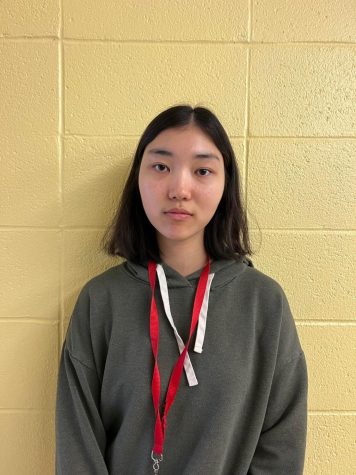Is Parental Love an Instinct or a Learned Behavior?
December 21, 2022
A few months ago, I was in my mom’s car after getting picked up from school like any other day. We were driving smoothly when we stopped at a the red light. Then, I witnessed a dramatic scene––a mother and son were arguing in the middle of the street. The mother’s face was red and all scrunched up, and the son’s eyes were on the ground. Even though I didn’t have any windows open, I could still hear the mother’s shouts, which consisted of words that no mother should ever say to her child or even to any other person. The son raised his head and for a split second our eyes met. The light turned green and my mom and I quickly passed the scene. But the boy’s heartbroken eyes and the mother’s shouts kept haunting my brain. Having grown up in an amicable, loving family, I could not even imagine how a mother could say such hurtful things to her own child.
After this incident, I began to think more deeply about the essence of parental love. How are some parents seemingly more capable of loving their children than others? If parental love is instinctual, as many perceive it to be, then why do one in four children experience child abuse or get neglected by their parents? If parental love is not instinctual, then is it acquired by a parent’s own experience with their parents? But even then, the argument that parental love is taught is also inaccurate; there are many people who come from peaceful, caring households who become abusive themselves, and many others who have had abusive parents who are now very loving to their own children. But, after reading countless fancy (and not always comprehensible) articles that study biology, I was finally able to come up with the conclusion that parental love is an instinct.
The explanation of parental love being an instinct ties to our biological makings. As stated by Karen Waldie, a professor in the field of Developmental Neuropsychology, humans are “genetically wired” to love their children. In general, mothers of all species are “biologically programmed” to take care of their children. This is to ensure that offsprings are secured so that a species doesn’t die out. However, as humans developed to become more sophisticated, their capability to feel affection blossomed from the original obligatory and instinctual care that was established by nature. The filial human relationship that had once regarded progeny as “offspring” now recognizes children more meaningfully as “sons” and “daughters.”
So, if humans are biologically meant to love their children, why are there so many cases of abuse? It is my opinion that our instinct to love is oftentimes overpowered by our personalities and the environments we live in. Unlike many other species, individuals of the human species have become more independent with various personalities as we have evolved. Some individuals are more naturally prone to anger while others are more gentle and kind. One’s environment may also be a factor to one’s inability to treat one’s children with care. If an individual grew up with abusive parents or in a violent environment, they may be more prone to develop a darker personality that may badly affect their children in the future.
The most important thing to take from all this information, though, is that we are meant to love. So many parents in our society choose not to, and their behaviors cannot be justified by any reason. As stated before, many people who have experienced abusive environments can grow up to become good people and good parents. It’s just a matter of choosing whether or not to become a moral person or not. If one chooses not to, neither their pasts nor their personalities can justify their actions. I hope that despite the hardships they go through, parents of this global community will unconditionally love their children as they are genetically meant to.

















































































































































